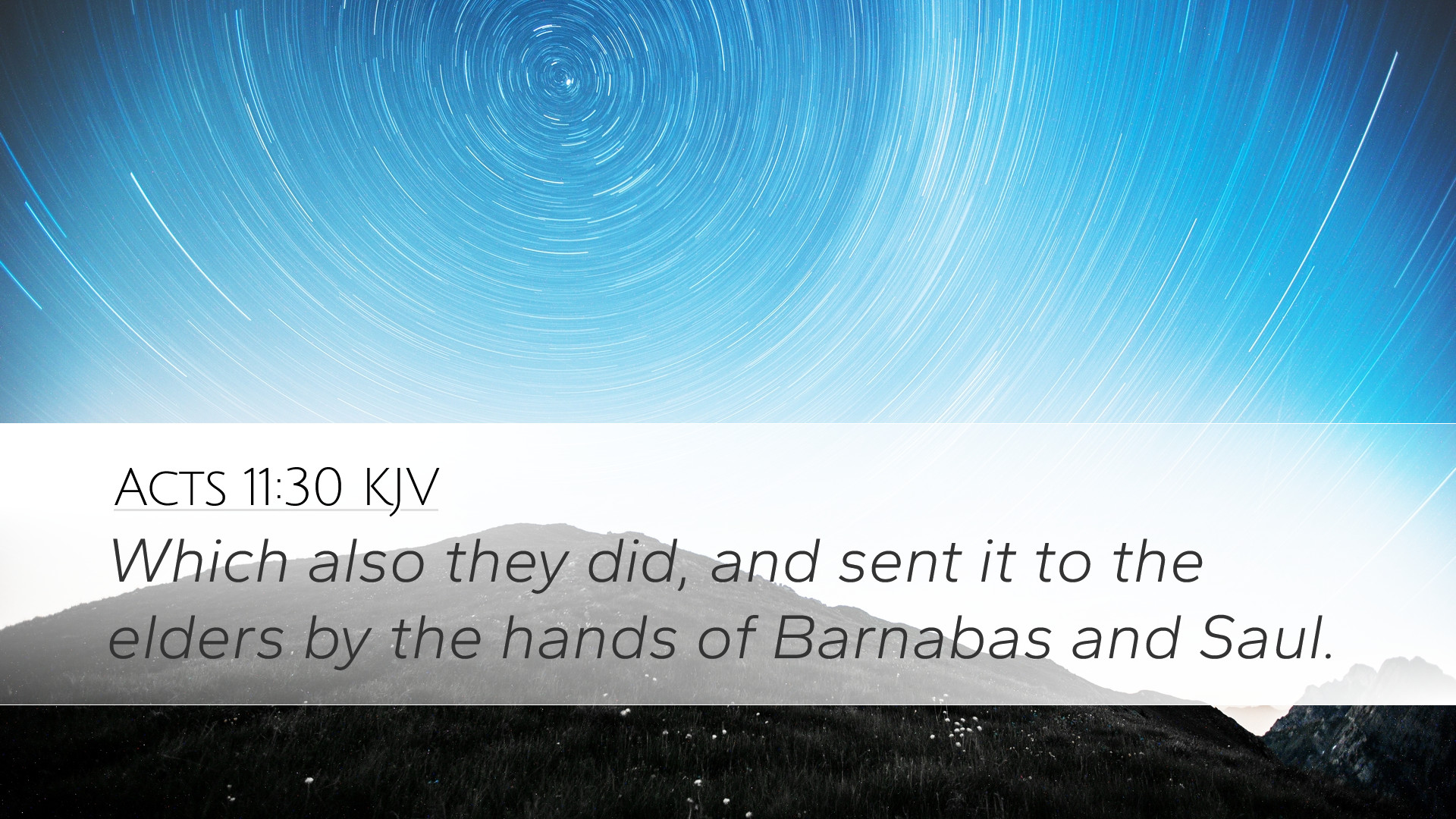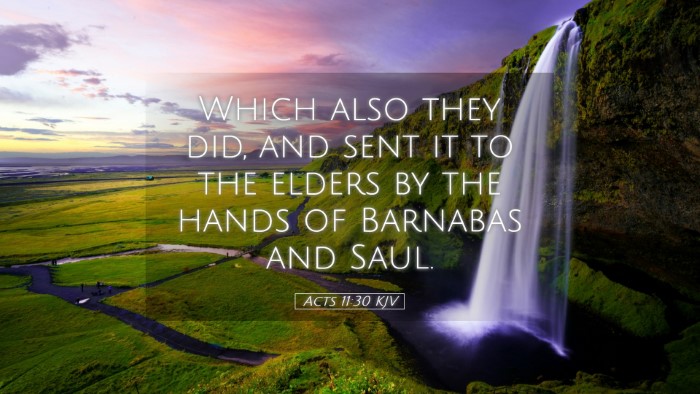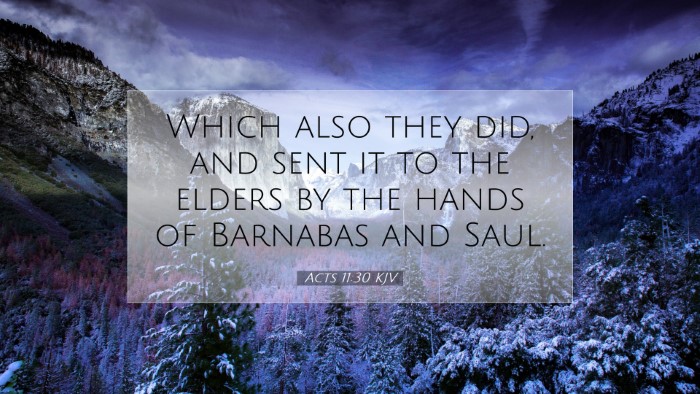Commentary on Acts 11:30
Acts 11:30 states: "So they did, sending their gift to the elders by Barnabas and Saul." This verse captures a significant moment in the early Church, illustrating the unity and support within the Christian community during a time of need.
Contextual Overview
The Acts of the Apostles, penned by Luke, chronicles the development of the early Church after Christ's ascension. Acts 11 presents the pivotal moment of the Church's expansion to Gentiles and the outpouring of the Holy Spirit.
This specific verse is situated in a narrative where the Church in Antioch takes on a proactive role in caring for believers in Judea, prompted by the prophetic revelation of a forthcoming famine (Acts 11:28). This not only shows the foresight of the early Christians but also their commitment to communal support.
Insights from Matthew Henry
Matthew Henry emphasizes the significance of the Church's response to the impending famine. He notes:
- Communal Responsibility: Henry highlights that the early Church understood its duty to care for its members. The collection sent to Judea exemplified the active love and generosity of the Christian community.
- Leadership in Giving: By choosing Barnabas and Saul to deliver the gift, the Church demonstrated wise leadership in representation, ensuring that the act of generosity was led by trusted apostles.
Henry gives emphasis to the spiritual implications of giving, suggesting that the act of providing for those in need is not just a physical support but also a matter of spiritual solidarity. The sending of the gift is framed as both an obligation and a privilege.
Insights from Albert Barnes
Albert Barnes provides a concise analysis of the terms used in this passage, focusing on the nature of the gift:
- Nature of the Gift: Barnes suggests that the gift was likely monetary or supplies needed for survival, reflecting a practical approach to fulfilling spiritual needs.
- Role of Elders: He points out the significance of the elders receiving this gift, indicating the early Church’s clear structure of leadership and authority, which was essential for maintaining order and care within the growing community.
Furthermore, Barnes highlights that the church's action exemplifies the principle that spiritual obligations often manifest in tangible support and that this outreach was vital for unity and building of faith among believers.
Insights from Adam Clarke
Adam Clarke offers a thorough examination of the cultural context surrounding the donation:
- Cultural Context of Generosity: Clarke remarks on the importance of sharing resources within the ancient Mediterranean societies, where generous acts were integral to communal relationships.
- Prophetic Insight: He emphasizes the role of the prophets in discerning the need for support in Judea, which points to the active involvement of spiritual leaders in guiding the community's responses to crises.
Clarke also notes the importance of Barnabas and Saul’s roles as emissaries. He illustrates how their journey to Judea serves not only as a means of delivering aid but also as an opportunity for ministry and the spreading of the Gospel. Their witness through this mission aligns with the broader mission of the Church to reach out to those in physical and spiritual need.
Theological Reflections
This passage invites deeper reflection on several theological themes:
- Unity in the Body of Christ: The act of sending aid from one church to another highlights the interconnectedness of believers across different regions, echoing Paul's later teaching on the Church as the body of Christ.
- Generosity as a Lifestyle: The early Christians modeled a way of living that put the needs of others first, underscoring the principle that authentic faith produces kindness and charity which transcends local congregational boundaries.
- Leadership and Accountability: The choice of Barnabas and Saul to deliver the gift suggests an understanding of responsible leadership and accountability within the Church's governance.
Conclusion
Acts 11:30 encapsulates an essential aspect of the Christian community’s ethos—support and love for one another in times of need. Through insights drawn from Matthew Henry, Albert Barnes, and Adam Clarke, we see that this passage is rich with implications not only for the early Church but also for contemporary believers.
As pastors, students, theologians, and scholars reflect on this verse, it is crucial to recognize the enduring call to generosity and communal care that transcends time, ensuring that the body of Christ functions as intended: as one united in both spirit and action.


